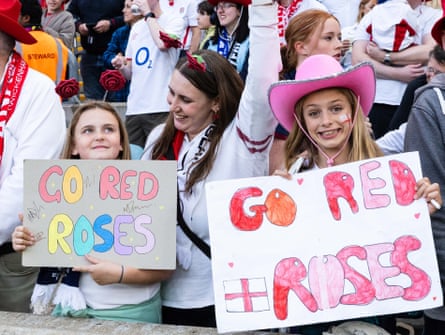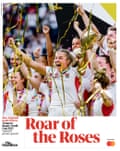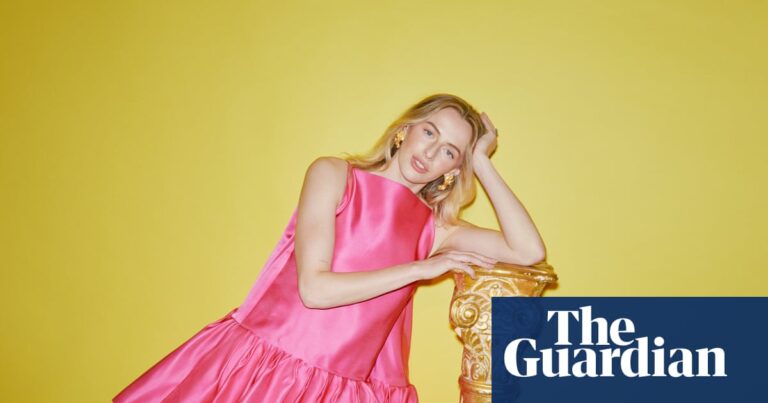
Sometimes it is about more than just a shiny trophy. Yes, the Red Roses are now the champions of the world and deservedly so. Yes, they have claimed the elusive glittering prize for the first time since 2014. But in all sorts of ways the past month will go down in history for something even more important: the coming of age of women’s rugby union as a mass spectator attraction in a summer of female sporting empowerment like no other.
Everyone will have their own abiding memories of the past month, just as they did when the Lionesses captured their nation’s hearts in July. For every small child aching to be Chloe Kelly or Lucy Bronze there will now be others dreaming of being as brilliant as Ellie Kildunne or Meg Jones. Winning helps, of course it does, but so does relatability, connection and shared enjoyment. The Red Roses put smiles on a lot of faces not least because they radiated so much joy themselves.
In the process they altered how rugby more widely is perceived and, just as importantly, how it perceives itself. In the past Twickenham on big rugby days has been a whiter shade of male. Not any more. From now on it will be significantly harder to lob the usual tired old jibes at rugby union: that it’s a “posh boys sport” or “a game for hooligans played by gentlemen”. Now, self evidently, it is for absolutely everyone of any size or shape. Rugby belongs equally to men and women.

And, once the golden ticker tape has been swept up and the pink cowgirl hats are back on their pegs, the realisation will dawn that other significant mountains need scaling. Canada had to appeal for crowdfunding to support this year’s campaign, a situation described as “absolutely ridiculous” by the former England prop Rocky Clark. “What we want is for all nations to be professional, for the games to be close, for there to be jeopardy,” stresses Clark. “It’s great England smashing everybody but I want games that people talk about for weeks after.”
The impressive Canadian head coach, Kévin Rouet, also made clear afterwards that, for ambitious top-level women’s players outside England, the sums still do not remotely add up. “It’s not a professional league when you get paid £400 a month. Any time [our] girls decide to stop rugby they’re going to make their life easier and better. It’s going in the right direction but we still need to keep growing the women’s game.”
There are echoes in all this of certain Olympic women’s sports, huge every four years only to recede into the shadows in between. “Eighty-two thousand at Twickenham is brilliant but what are the numbers going to be like in the Six Nations?” asks Catherine Spencer, England’s captain the last time they hosted a World Cup, in 2010. “After 2010 the opportunity wasn’t really taken and things went backwards for a little while. I really hope that doesn’t happen.”

One for another day, perhaps. What currently outweighs even England’s golden glow are the new hearts and minds this World Cup has helped to woo. “Rugby has the influence to change anyone’s life,” insists Dow. “It is quite stereotyped, especially with boys, that it can be a middle-class sport, but it really isn’t. I want to see rugby move up to the north, I want to see it flourish across the country, because look at what football has done in the women’s game.” Well done, England, and here’s to the Kildunnes and Joneses of tomorrow.
This article is part of the Guardian’s print supplement celebrating England’s World Cup win, available with Monday’s newspaper.




